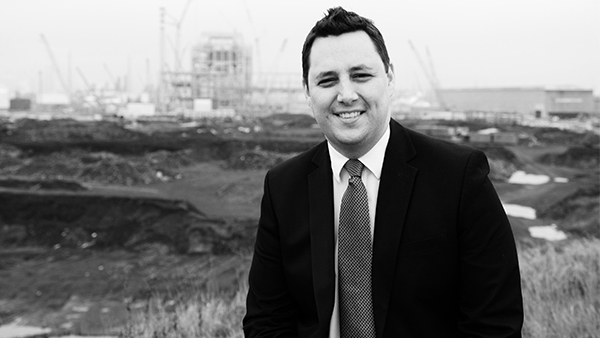Thomas O’Brien FRSA makes the case for a UK sovereign wealth fund based in Wolverhampton, arguing it would create a better future for the next generation, provide businesses crucial financial support and help to spread the UK’s wealth around the country. He concludes that in the long-term, such an approach would allow future UK governments to fund public spending and manage financial crises through surpluses, rather than enormous borrowing.
Whenever a major crisis hits the UK economy, we always need to borrow to survive it. The Covid-19 pandemic sent borrowing soaring to £55 billion in May alone. As a result, national debt now exceeds 100 percent of GDP for the first time since the 1960s, standing at a nauseating £1.95 trillion. What if we could invest some of the money generated by government bond issuances into a fund, which future UK governments could draw from to survive economic turbulence, without having to engage in similarly massive borrowing themselves? Could creating a sovereign wealth fund eventually help us to provide for future generations through surpluses?
What are sovereign wealth funds?
A sovereign wealth fund is a fund financed by a government, which is invested in a range of assets for the benefit of future generations. Assets usually include stocks, bonds, property, commodities, pension funds and cash depending on the mandate for the fund. Wealth planning expert, Svenja Keller, sees the stock market as likely to generate “real, long-term growth” for sovereign wealth funds, as returns from successful investments could be reinvested and compounded, earning returns on returns.
These mandates often differ depending on what a government’s priorities are. Some governments will want a fund that they can withdraw cash from to stabilise their economies following a significant shock, such as the financial crash of 2008 or the present Covid-19 crisis. As well as protecting markets from irreparable damage, stabilisation funds also allow governments to step in and regulate interest rates if required.
Others will want to use sovereign wealth funds to develop their economies. In this instance, they might take large positions in some of the country’s most significant employers to facilitate their continuing growth. Equally, a development fund might make significant investment in new technologies and start-ups, in the hope of creating new industries that thrive domestically. Over time, these industries will increase both GDP and tax revenues, giving the government a significant return on their original investment in the fund.
Sometimes, governments just want to save money for future generations, so that increased public spending does not need to be paid for through increased borrowing and higher tax rates.
Occasionally governments will need a mix of all three. Mandates can, of course, change over time. The important point here is for countries to use sovereign wealth funds to gradually become less and less dependent on borrowing to sustain their economic growth and productivity, and eventually finance public spending through surpluses.
The UK context
In his influential paper for the Reform think tank, John Penrose MP (Conservative, Weston-super-Mare) argued that a UK Sovereign Wealth Fund could act as an ‘anchor investor’ for a range of established businesses and innovative start-ups across the country. This would provide ground-breaking enterprises with both the capital that they need to grow, and the reassuring certainty that they would enter the widespread economic turbulence of the coming year with solid, government-backed investment, rather than loans submerging them in debt.
Penrose argues this would allow them to build their businesses in the UK, rather than selling their businesses (and their valuable intellectual property) to foreign tech giants who offered attractive packages for financing their growth and moving their operations overseas. The outcome would be more jobs in the UK and ultimately, a significant uptick in HMRC’s tax receipts over the long-term.
Returns from the sovereign wealth fund’s investments would eventually reach sufficient maturity to pay off the interest and repayment costs of the bonds originally issued to capitalise the fund, as well as supporting the servicing of the UK’s existing national debt.
Additionally, these returns could eventually provide major contributions the UK’s state pensions and many other state benefits. Norway’s Government Pension Fund Global, is now worth over $1 trillion, despite having only been established in 1990, and waiting until 1996 to receive its first deposit from the Norwegian Ministry of Finance. Imagine how the gradual development of a similar fund of this scale could benefit future generations in the UK.
Why Wolverhampton?
Much of the UK’s financial system currently operates out of the City of London. A Midlands-based sovereign wealth fund would celebrate the vast commercial talent based outside of London. Furthermore, choosing Wolverhampton would place the fund in an exciting tech hub, full of innovative start-ups with potential to add immense value to our economy. HS2 will run through Wolverhampton, conveniently bringing researchers, entrepreneurs and financial experts from across the country together to contribute their ideas to the fund’s growth on a regular basis.
As Svenja commented when I spoke to her about the issue: “A UK SWF based outside of London is a great idea because it would create more economic equality between the regions. As a German national, I’m used to a more de-centralised model where a number of cities have great industry. I would like to see a similar approach promoted in the UK, where so much commercial activity is still based in London.”
Sometimes the greatest crises lead to the greatest innovations. This is exactly the moment to carefully recycle the boxes in which we have been thinking and build a stronger economy for future generations through an unprecedented UK sovereign wealth fund.
Tom is a copywriter who helps a range of award-winning organisations to explore new ideas and hone their messaging. He actively promotes the West Midlands.
Related articles
-
“What people want is constancy”
Matthew Taylor Ben Houchen
Matthew Taylor and Ben Houchen discuss the need for constancy from politicians.
-
Brixtopia: a new nation-state-of-mind
Charlie Waterhouse
In the wake of Brexit and the resurgence of the right, and with social media seeking to ever-narrow our horizons for commercial gain, two RSA Fellows from London are employing their design skills to create an experimental utopia: Brixtopia.



Be the first to write a comment
Comments
Please login to post a comment or reply
Don't have an account? Click here to register.